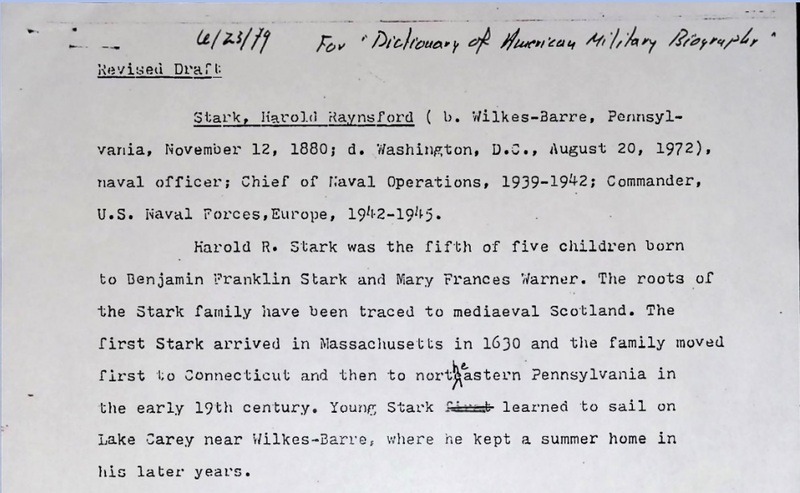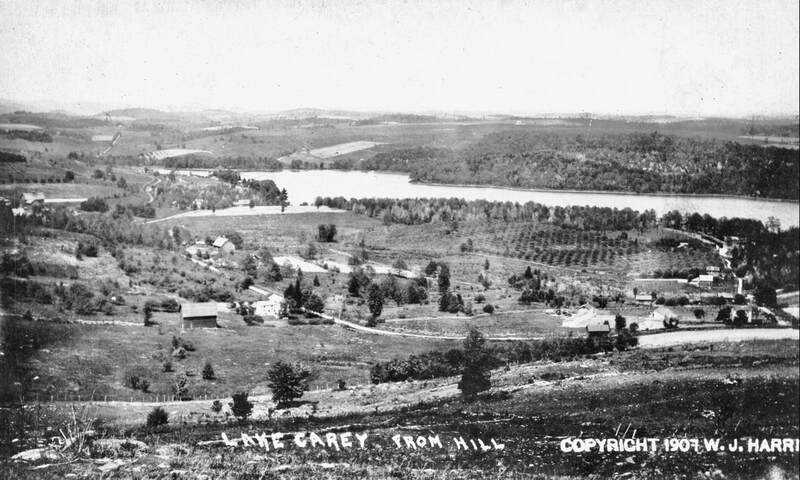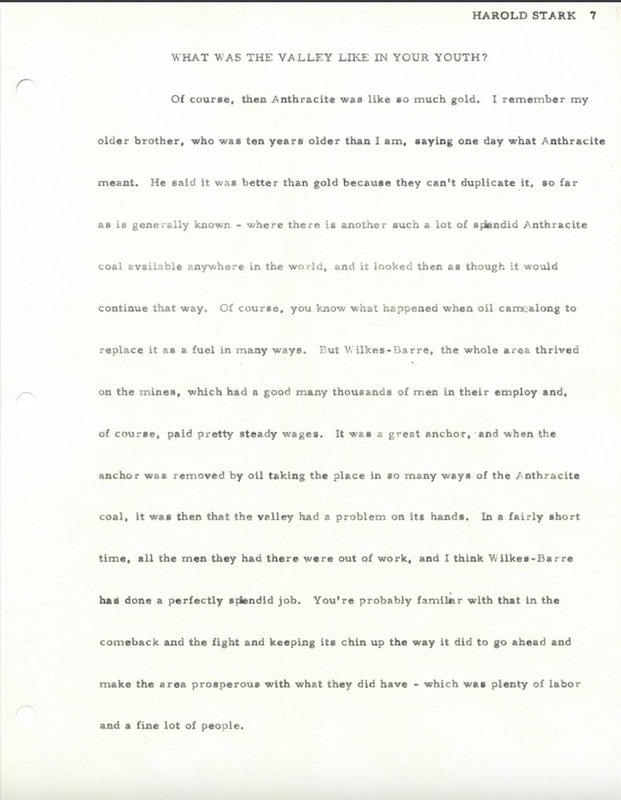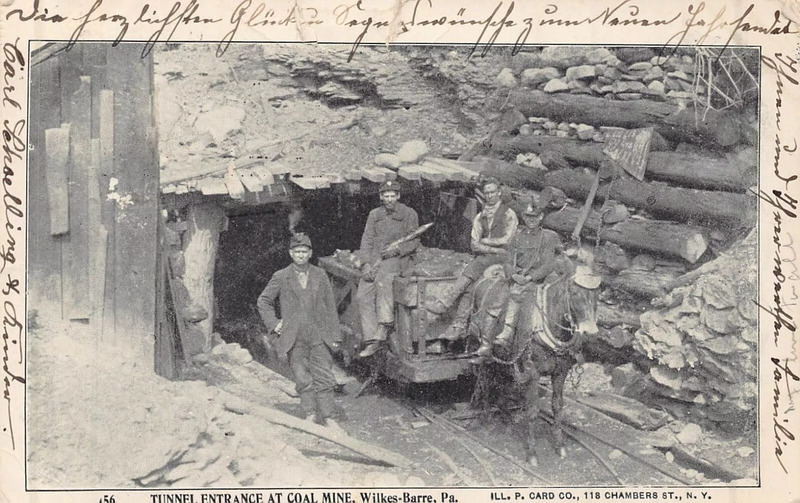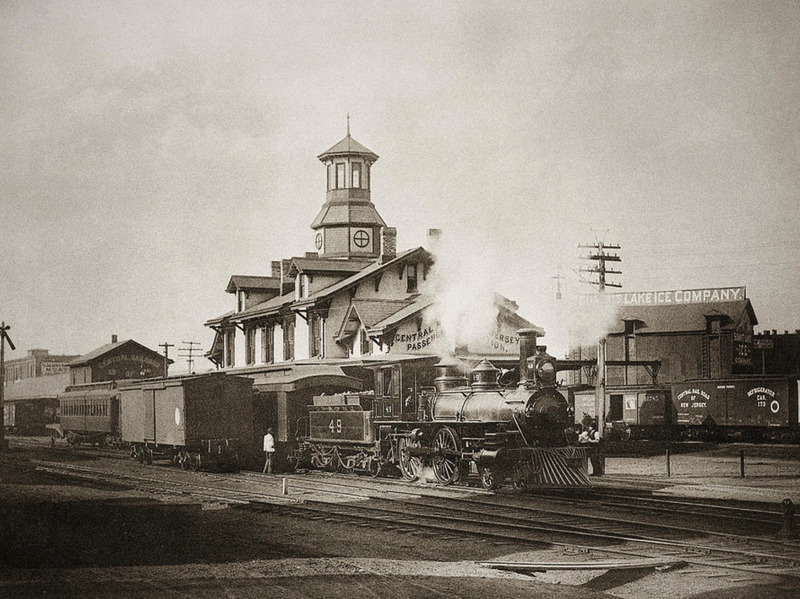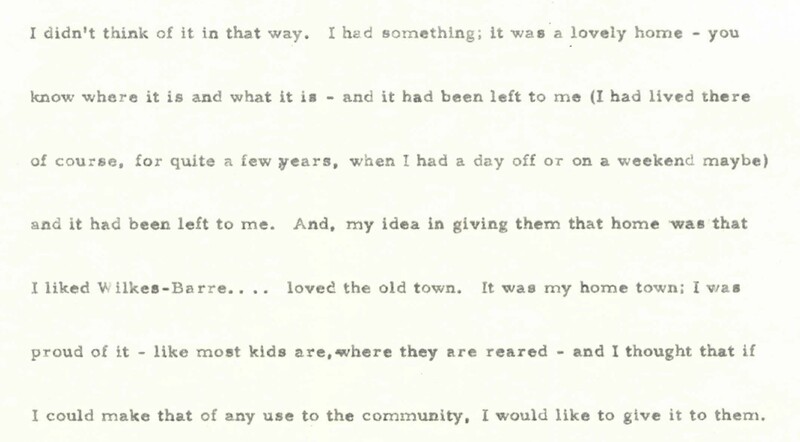Harold Stark's Early Life
Harold Raynsford Stark (1880-1972) was born in Wilkes-Barre, Pennsylvania, on 12 November 1880 to parents Benjamin Franklin Stark (1845-1893) and Mary Frances Warner (1848-1915). It is believed that Harold Stark lived at 446 South Franklin Street in Wilkes-Barre Pennsylvania according to a naval cadet federal census entry from 1900. This house was among one of three historical buildings to be demolished in Jan 2023.
Stark was the youngest of five children. His family often enjoyed taking trips to Lake Carey, where he first learned how to sail. Stark spent his younger years – prior to Naval academy and training – learning how to captain ships and compete in sailboat racing at Lake Carey, Tunkhannock, Pennsylvania. Below is a postcard showing what the lake looked like in the early 1900s during Stark's childhood.
In an interview with Robert Phillip Bomboy (1941-2024) which took place in autumn 1967, Stark reminisced on the importance of coal in Northeastern Pennsylvania and the effect it had on strengthening the labor and economy nearing the end of the 17th century.
Stark's oral history interviews mentions the importance that the Coal mines had on the area. Coal was a significant source of the U.S. economy throughout the late 1800s and early 1900s. Labor allowed for the mining of coal that would be used to power trains and trade transportation. Coal mining altered the trajectory of society and how it progressed, leading to the further industrialization of Northeastern Pennsylvania.
Because of the abundance of anthracite coal in the region, many railroads were built to export this valuable resource. The Wilkes-Barre New Jersey Central Train Station was built in 1868 with an old Victorian and Gothic style. The line was originally the Lehigh and Susquehanna Railroad, a subsidiary of the Lehigh Coal and Navigation System. The station served passengers continuously until 1963, and the building closed in 1972.
Harold Stark's childhood in Wilkes-Barre left a notable impression on him later on in life during and after his naval career, so much so, that he donated his home, one left to him by his sister, the wife of Frederick Chase, to Wilkes College. In his Bomboy interview, he reflected on the importance of giving back to his hometown.
